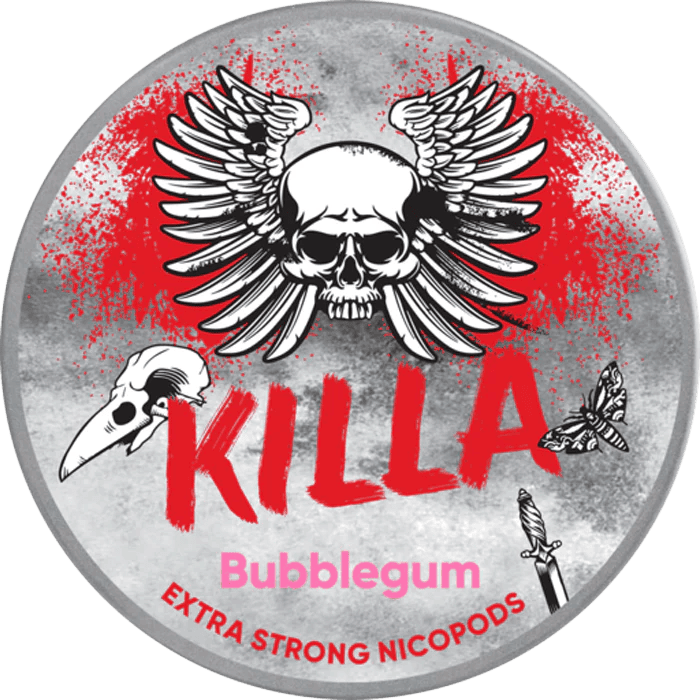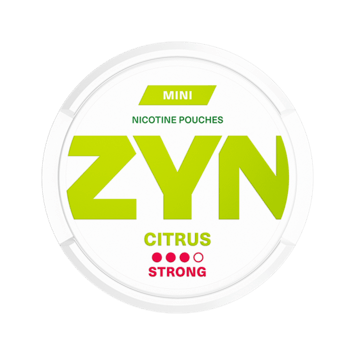What You Need to Know About Cotton mouth?
Philip Plainstein

Dry mouth, also known as cotton mouth or xerostomia, happens when there’s not enough saliva. Many things can cause this. Some include not drinking enough, certain medicines, getting older, or treatment for cancer.
When you smoke or have health problems, dry mouth might happen more. In this article, we’ll look at what causes it, the signs, how doctors find it, and ways to treat it.
Key Takeaways:
- Cotton mouth, or dry mouth, happens when there’s too little saliva.
- Causes can be not drinking enough, some medicines, cancer treatment, getting older, smoking, or health problems.
- Signs of cotton mouth are having a dry or sticky mouth, bad breath, and finding it hard to chew, swallow, or taste food.
- Doctors check for cotton mouth by asking about your health, looking in your mouth, and checking if you make enough saliva.
- Ways to help with cotton mouth include changing medicines, using things to make more saliva, keeping your mouth clean, and lifestyle changes.
Common Causes of Cotton mouth
Cotton mouth, also known as dry mouth or xerostomia, happens due to different reasons. Knowing these can help deal with it better. Let’s look at what usually causes this problem:
Medications that Cause Dry Mouth
Taking certain medicines is a big reason for cotton mouth. This happens with both, pills from the doctor and those we buy. Some examples are antihistamines, decongestants, antidepressants, and more. These drugs lower saliva, causing that dry feeling.
Cancer Treatment and Dry Mouth
Getting radiotherapy for cancer in the head or neck can hurt the salivary glands. These glands make saliva, which keeps our mouths wet and helps digest food. When they get hurt, we don’t make enough saliva. And so, we get cotton mouth.
Dehydration and Dry Mouth
Not drinking enough water can also cause cotton mouth. A lack of water means your body can’t make enough saliva. This happens when you don’t drink enough water, sweat too much, or are sick. Many things can dry you out.
Other Causes of Cotton mouth
Not just medicines, cancer treatment, or not drinking water, many things can cause cotton mouth. Smoking, growing older, or even surgery can affect your mouth being wet. Health problems like diabetes or HIV can also do this.
Knowing what can cause cotton mouth is important. It helps you do things to avoid or deal with it. Talking to a doctor is the best way to figure out how to treat it. They can help you based on what’s causing your cotton mouth.
Symptoms of Cotton mouth
Cotton mouth, or dry mouth, shows many symptoms. These affect how clean our mouth is and our life’s quality. Here are some common signs:
- A dry or sticky feeling in the mouth
- Thick or stringy saliva
- Bad breath
- Difficulty chewing, speaking, and swallowing
- Dry or sore throat
- Altered taste
- Tongue pain
- Increased thirst
- Gum disease and tooth decay
- Problems wearing dentures
- Sticky or stringy saliva
These signs can be different for everyone. Feeling dry or sticky in the mouth is often reported. This can be very uncomfortable. Also, thick saliva can make it hard to speak or swallow. Altering taste and tongue pain changes how we enjoy food and drink.
With less moisture, you’ll probably feel thirsty a lot. Gum disease and tooth decay can happen. This is because saliva usually washes away bacteria.
Remember, these symptoms might not just be from cotton mouth. Other oral or health issues could cause them too. So, if you have these signs, see a doctor for the right help.
Diagnosis of Cotton mouth
To diagnose cotton mouth, doctors use different methods. They look into the patient’s health history. This shows if medicines, past treatments, or sicknesses might be causing it.
They also do a careful check of the mouth, salivary glands, and the neck. This is to see if there are any obvious problems.
Doctors may order blood tests too. This can catch medical issues that could make cotton mouth worse.
Imaging scans, like ultrasounds or MRIs, check the salivary glands. They help the doctors see if there are any hidden problems.
Sialometry is a test to see how much saliva someone makes. Knowing this can help doctors understand how well the glands are working.
Sialography is a special X-ray test for the salivary system. It uses a dye to see problems clearly.
By using these tests, doctors can pinpoint the issue with cotton mouth. They then make a plan to treat it.
| Diagnostic Methods for Cotton mouth | Description |
|---|---|
| Reviewing the patient’s medical history | Provides insights into potential causes and contributing factors |
| Physical examination | Evaluates for visible signs and abnormalities in the oral cavity and head and neck area |
| Blood tests | Checks for underlying health conditions |
| Imaging scans | Assesses the salivary glands and ducts for blockages or abnormalities |
| Sialometry | Measures saliva flow rate to determine functional capacity of salivary glands |
| Sialography | Radiographic examination of salivary glands and ducts using contrast dye |
Treatment Options for Cotton mouth
The way we treat cotton mouth depends on why it happens and how bad it is. Fixing the symptoms can help your mouth feel better and make you healthier overall.
Adjusting Medication
Some medicines can dry out your mouth. If this is the case, your doctor might change your medicine or the amount you take. Always talk to your doctor before making any changes to your medicine.
Saliva-stimulating Medications
There are medicines that can make you produce more spit. These include drugs like pilocarpine and cevimeline. They make your salivary glands more active, which can help with cotton mouth.
Maintaining Good Oral Hygiene
Looking after your mouth is really important. Brushing, flossing, and seeing your dentist regularly can stop problems like cavities and gum disease.
Artificial Saliva and Saliva Substitutes
Artificial saliva can make your mouth feel wet again. It’s made to be like your natural spit. You can use it whenever your mouth feels dry.
Avoiding Tobacco and Alcohol
Smoking and drinking alcohol can make your mouth even drier. It’s best to not smoke and drink less to feel better if you have cotton mouth.
Staying Hydrated
Drinking enough water is key to fighting dry mouth. Sip water all day to keep your mouth wet.
Using a Humidifier
A humidifier puts moisture back into the air, which can be good for your dry mouth. It’s especially helpful when you sleep.
Salivary Gland Surgery
Sometimes, if nothing else works, you might need surgery. This type of surgery tries to make your salivary glands work better. It’s done to reduce your dry mouth symptoms.
| Treatment Options | Description |
|---|---|
| Adjusting Medication | Modifying the dosage or switching to a different medication to address dry mouth caused by medications. |
| Saliva-stimulating Medications | Prescribing medications that stimulate saliva production to alleviate dryness in the mouth. |
| Maintaining Good Oral Hygiene | Practicing regular brushing, flossing, and dental check-ups to prevent dental problems associated with dry mouth. |
| Artificial Saliva and Saliva Substitutes | Using specially formulated products to mimic natural saliva and provide moisture to the mouth. |
| Avoiding Tobacco and Alcohol | Avoiding tobacco products and limiting alcohol consumption to manage dry mouth symptoms. |
| Staying Hydrated | Drinking plenty of water and staying hydrated to alleviate dry mouth symptoms. |
| Using a Humidifier | Using a humidifier to add moisture to the air, especially during sleep. |
| Salivary Gland Surgery | A surgical procedure to improve saliva production and relieve severe dry mouth symptoms. |
Tips for Managing Cotton mouth
Got dry mouth? There are many things you can do. Try these tips daily to feel better:
Sip water regularly: Drinking water keeps your mouth wet. Take little sips often.
Chew sugar-free gum: Sugar-free gum makes more spit. It’s good for your teeth.
Use saliva substitutes: These products act like spit. They can make you feel better for a little while.
Avoid mouthwashes that contain alcohol: Some mouthwashes make dry mouth worse. Pick ones without alcohol.
Avoid wearing dentures while sleeping: Take out your dentures at bedtime. It helps your mouth rest. Clean your dentures every night, too.
Lifestyle changes can also help with dry mouth. Here are some ideas:
- Avoid tobacco: Smoking or using tobacco makes dry mouth worse. Quitting is good for you and your mouth.
- Limit caffeine intake: Coffee and tea can dry out your mouth more. Try to drink less.
- Avoid sugary and acidic foods: They’re bad for your teeth and mouth. Eat snacks that are healthy for your mouth.
- Stay hydrated: Drink lots of water. It’s the best way to keep your mouth moist.
- Use a humidifier: Dry air can be tough on your mouth. A humidifier adds moisture to the air.
Keeping your mouth clean is really important. Try these oral hygiene steps:
- Brush your teeth at least twice a day with a fluoride toothpaste.
- Floss daily to keep your teeth and gums healthy.
- See the dentist often to check your mouth’s health.
With these changes, you can deal with dry mouth better. This will improve your oral health and how you feel in general.
Cotton mouth and Health Conditions
Cotton mouth is when your mouth feels dry. It is also called dry mouth or xerostomia. It can show up with many health problems.
Understanding this link can help find problems early. It is good to know about the health issues that dry mouth can show.
Dry mouth is common with Sjögren’s syndrome. This is when the immune system attacks glands that make moisture. Eyes, mouth, and other places can feel dry.
Anxiety disorders and depression can make your mouth dry too. The worry and stress from these issues can reduce how much spit you make. This makes your mouth feel dry.
HIV/AIDS can also cause dry mouth. The virus can harm the glands that make spit. Medicines for HIV can also make your mouth dry.
Diabetes is another reason for dry mouth. When blood sugar is high, you feel very thirsty. This high sugar and thirst can make your spit lower.
A stroke or its medicines can bring dry mouth. Brain damage or drugs can stop the spit glands from working right.
Alzheimer’s disease can also make your mouth dry. This illness and age can change how much spit you make. This leads to dry mouth.
There are many other systemic diseases and autoimmune disorders that cause dry mouth. This group includes diseases like rheumatoid arthritis and lupus. If your mouth stays dry, see a doctor. They can check if a health issue is making your mouth dry.
Summary:
Dry mouth is a sign of many health problems. These include anxiety, depression, HIV/AIDS, Sjögren’s syndrome, and diabetes. Other diseases can also make your mouth dry.
If your mouth is often dry, talk to your doctor. They can see if there’s a health problem causing it.
| Systemic Diseases | Associated with Dry Mouth |
|---|---|
| Sjögren’s syndrome | Yes |
| Anxiety disorders and depression | Yes |
| HIV/AIDS | Yes |
| Diabetes | Yes |
| Stroke | Yes |
| Alzheimer’s disease | Yes |
| Other systemic diseases and autoimmune disorders | Yes |
Connection Between COVID-19 and Cotton mouth
Dry mouth is a known symptom of COVID-19. 60% of patients in a small study reported it. It’s not always a clear sign, but it’s good to keep in mind.
Complications of Cotton mouth
If you don’t treat cotton mouth, you might face some serious issues. These can include more tooth decay, gum disease, and mouth sores. You might also get a yeast infection in your mouth called oral thrush. And, your lips and the corners of your mouth might crack.
Cotton mouth can also make it hard to talk, chew, and swallow. So, it affects how you can enjoy your food and communicate with others.
Not having enough saliva can lead to more dental problems. Saliva helps keep your mouth healthy by getting rid of acids and food bits. It also stops bacteria from growing, which can cause tooth decay and gum disease.
But, without enough saliva, these protections don’t work well. This can mean a higher chance of dental trouble.
In addition to the above, you might have mouth sores if you have cotton mouth. These sores are painful and can make eating and talking hard. Less saliva because of cotton mouth can make it easier for yeast to grow in your mouth. This can lead to white patches from oral thrush.
Cotton mouth can also make your lips and mouth corners crack. They may feel dry, chapped, and even hurt. This makes it hard to talk, eat, and smile without pain.
Moreover, cotton mouth makes it tough to speak, chew, and swallow well. Less saliva can make your words sound unclear. And, eating and swallowing might not be smooth or comfortable.
So, it’s harder to communicate well and enjoy food.
Having cotton mouth can lead to poor nutrition, too. It’s hard to eat when it hurts or tastes different. This can lower your food intake. Over time, you could be missing out on key nutrients, affecting your health.
It’s really important to tackle cotton mouth early to dodge these problems. Finding and treating its cause, managing it wisely, and taking care of your mouth can lessen the risk of dental issues. This way, you can have a better life quality.
Conclusion
Dry mouth, often termed cotton mouth, is a regular issue. It can stem from different causes and affect dental health and general comfort a lot. Detecting its root problem and applying suitable remedies is key to ease the discomfort and avoid further issues.
Regular dental care is vital for those with dry mouth. This includes brushing, flossing, and seeing a dentist often. Drinking water often, cutting down on tobacco and caffeine, and keeping well hydrated are good steps too.
If dry mouth doesn’t go away, seeing a doctor is wise. They can check for any hidden health problems. Dealing with dry mouth early helps keep your mouth healthy. This improves how you feel overall.









